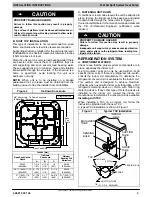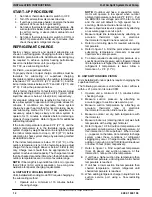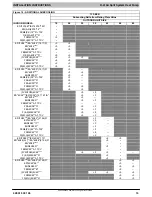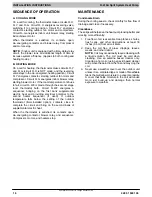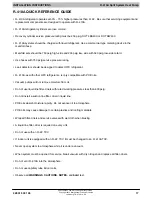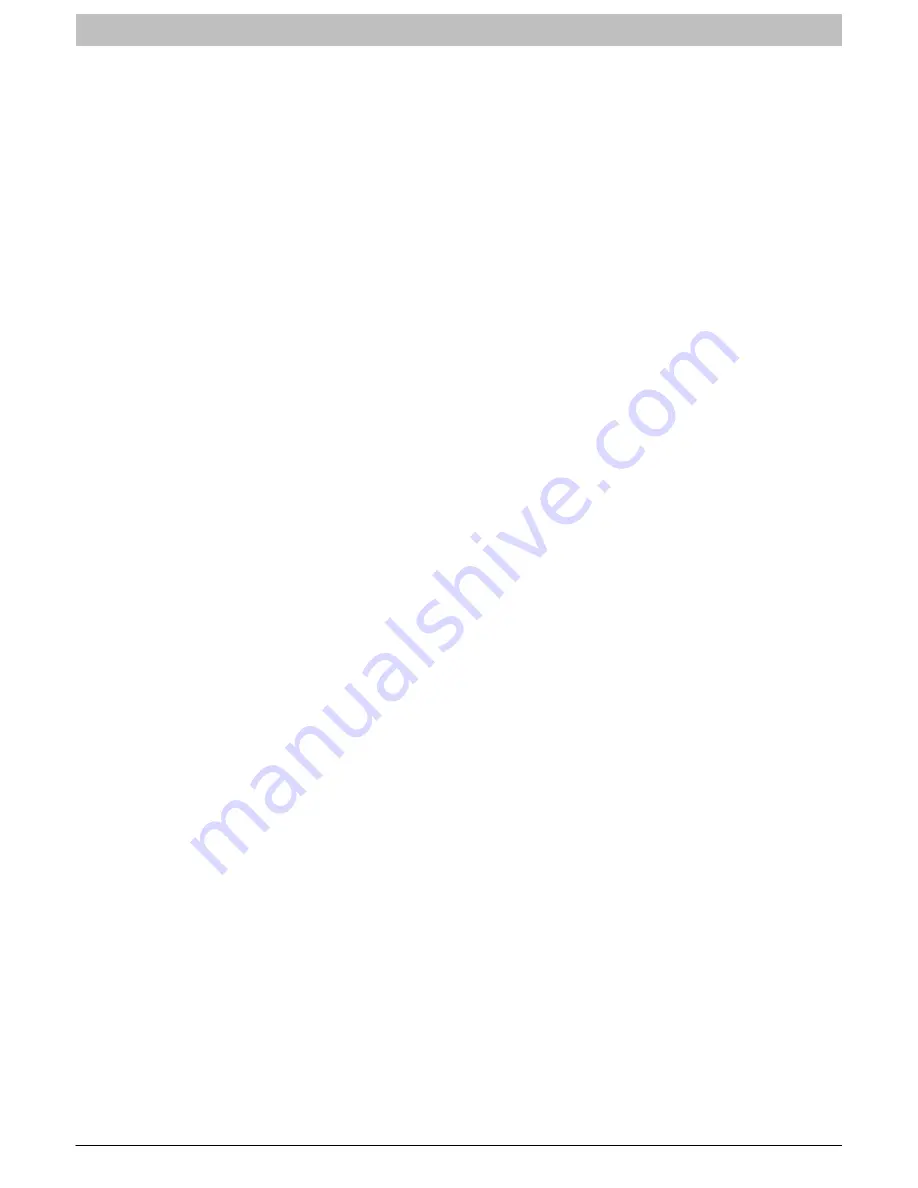
INSTALLATION INSTRUCTIONS
R
−
410A Split System Heat Pump
16
428 01 5301 05
Specifications subject to change without notice.
SEQUENCE OF OPERATION
A. COOLING MODE
On a call for cooling, the thermostat makes circuits R
−
O,
R
−
Y, and R
−
G. Circuit R
−
O energizes reversing valve,
switching it to cooling position. Circuit R
−
Y energizes
contactor, starting outdoor fan motor and compressor.
Circuit R
−
G energizes indoor unit blower relay, starting
indoor blower motor.
When thermostat is satisfied, its contacts open,
de
−
energizing contactor and blower relay. Compressor
and motors stop.
NOTE:
If indoor unit is equipped with a time
−
delay relay
circuit, the blower runs an additional length of time to
increase system efficiency. (Applies to both cooling and
heating modes.)
B. HEATING MODE
On a call for heating, the thermostat makes circuits R
−
Y
and R
−
G (circuit R
−
O is NOT made, and the reversing
valve stays in the de
−
energized, heating position). Circuit
R
−
Y energizes contactor, starting outdoor fan motor and
compressor. Circuit R
−
G energizes indoor blower relay,
starting blower motor. If the room temperature continues
to fall, circuit R
−
W2 is made through the second
−
stage
room thermostat bulb. Circuit R
−
W2 energizes a
sequencer, bringing on the first bank supplemental
electric heat and providing electrical potential to the
second heater sequencer (if used). If outdoor
temperature falls below the setting of the outdoor
thermostat (field
−
installed option), contacts close to
complete the circuit and bring on the second bank of
supplemental electric heat.
When the thermostat is satisfied, its contacts open,
de
−
energizing contactor, blower relay, and sequencer.
Compressor, motors, and heaters stop.
MAINTENANCE
Condensate Drain
During the cooling season, check monthly for free flow of
drainage and clean if necessary.
Cleanliness
These tips will help keep the heat pump looking better and
working more efficiently:
1. Free flow of air is essential. Keep fences, shrubs,
trash cans, and other obstructions at least 18
inches (0.5m) from all coil inlets.
2. Keep the coil free of grass clippings, leaves,
weeds, and other debris.
NOTE:
Coil may occasionally require cleaning with
a liquid solution. The coil must be cold when
cleaning. Use an alkaline based cleaner only.
Cleaning a hot coil or using an acid based cleaner
will remove the paint from the fins and may clog the
coil.
3. Never use a weather cover over the outdoor unit
unless it is a ventilated type or made of breathable
fabric that will allow moisture to evaporate rapidly.
A cover that holds moisture in the unit will cause
more rust build
−
up and damage than normal
exposure to weather.


